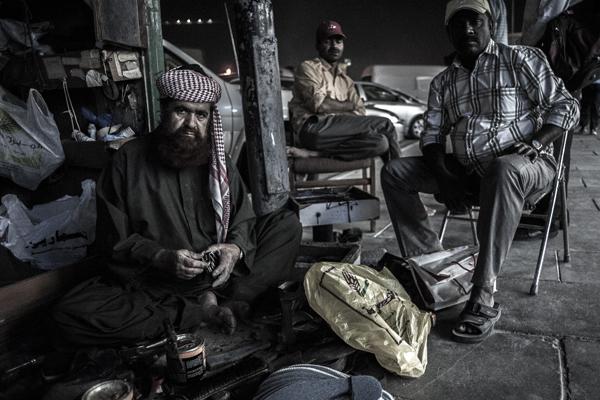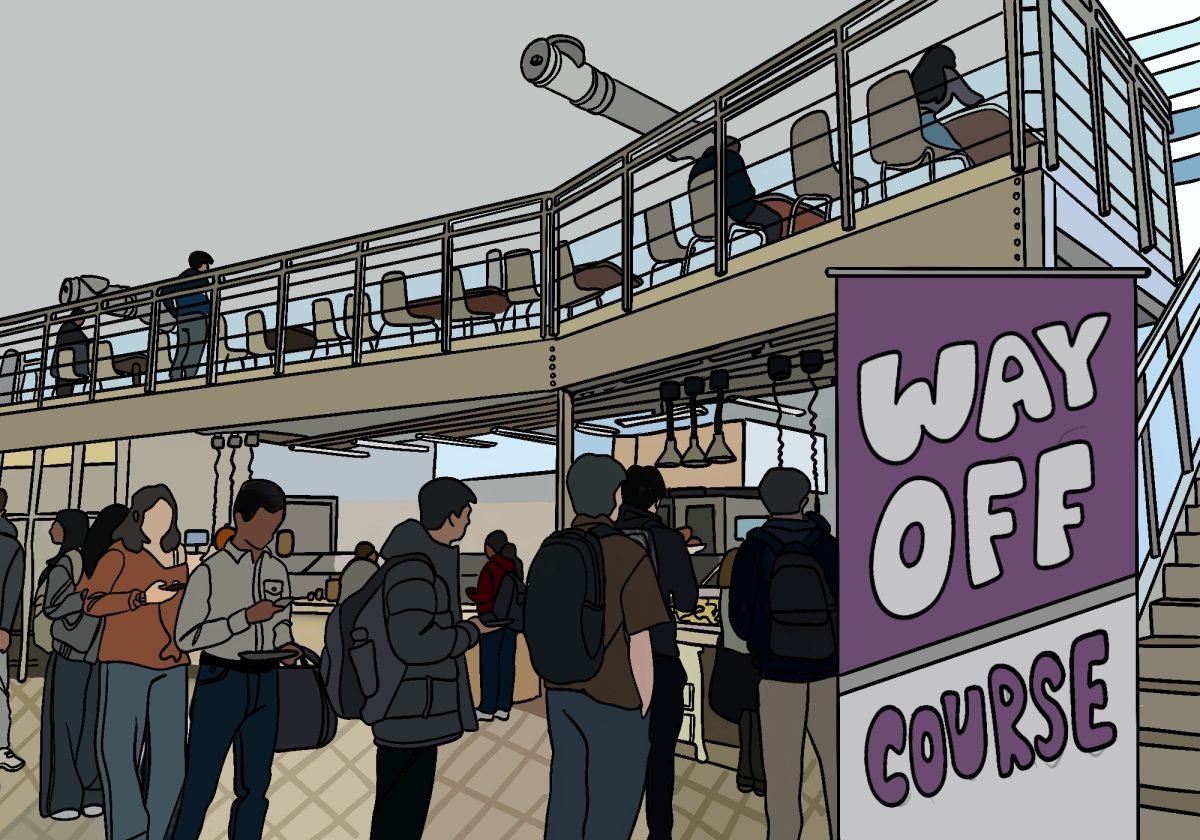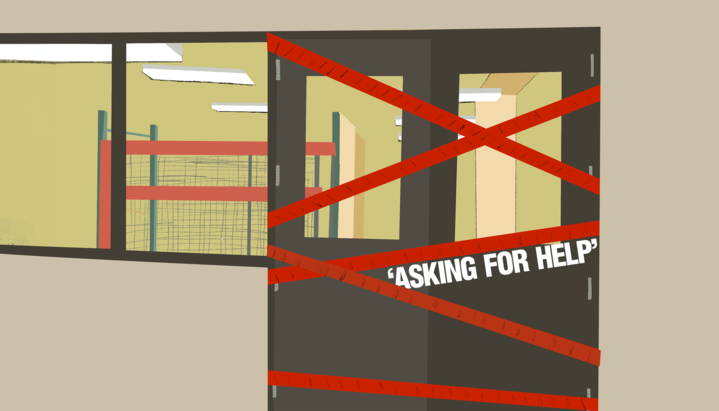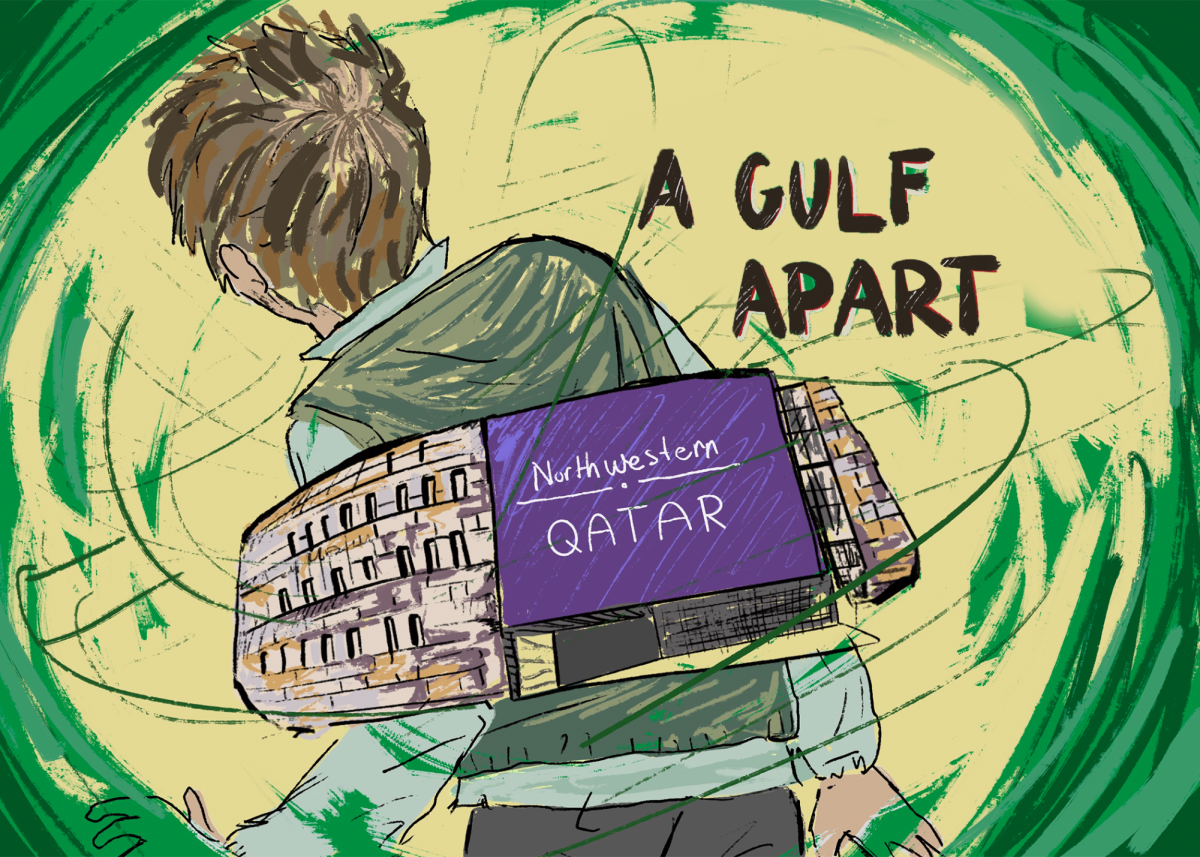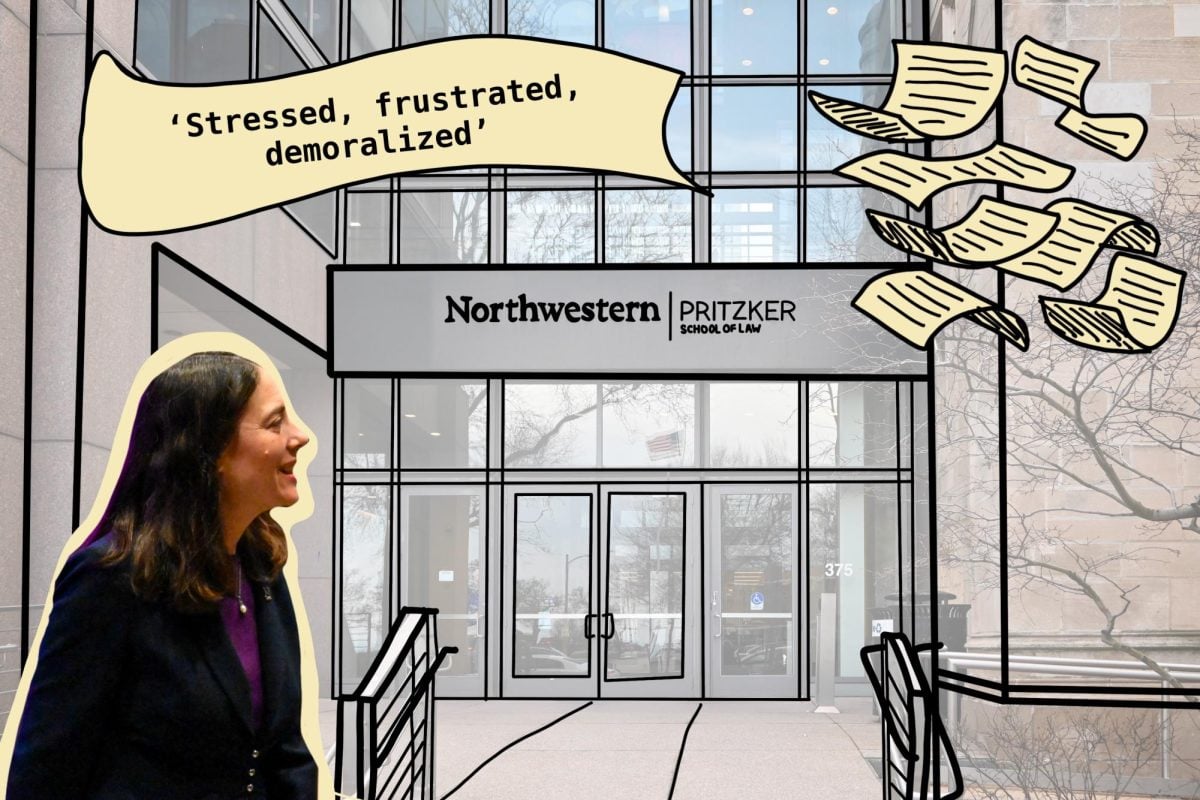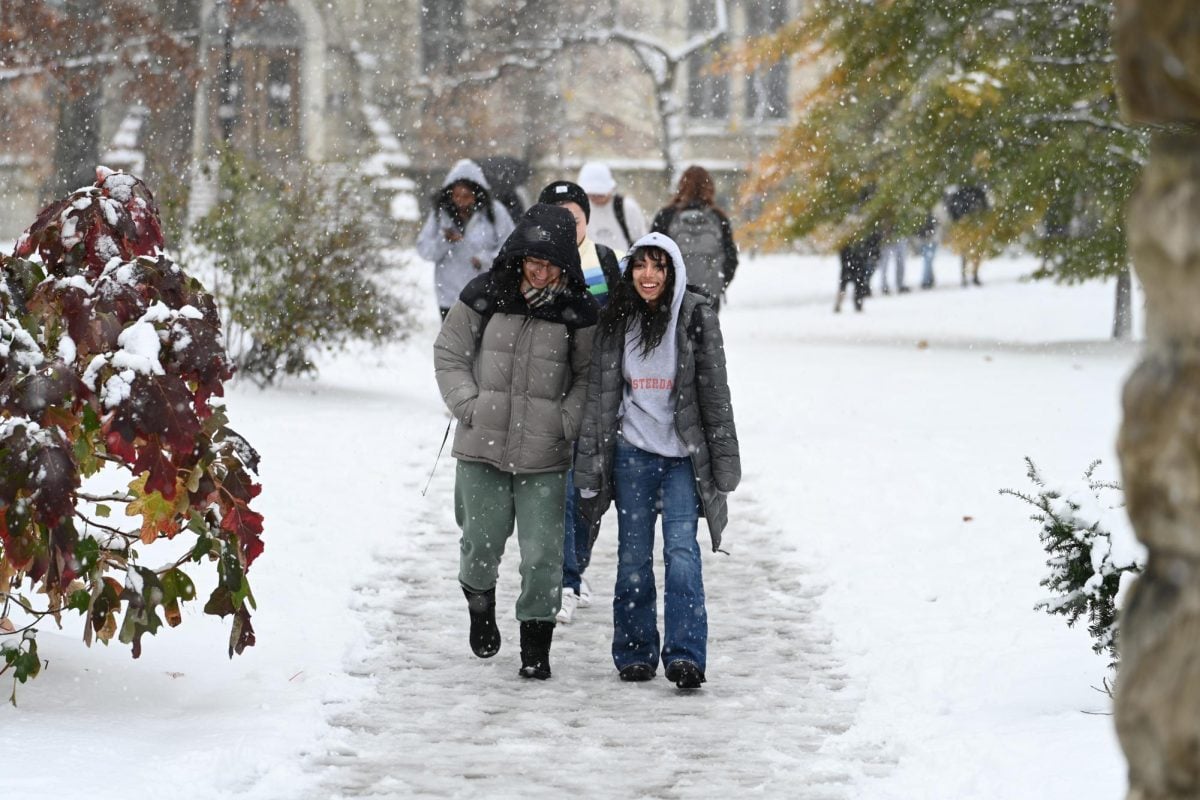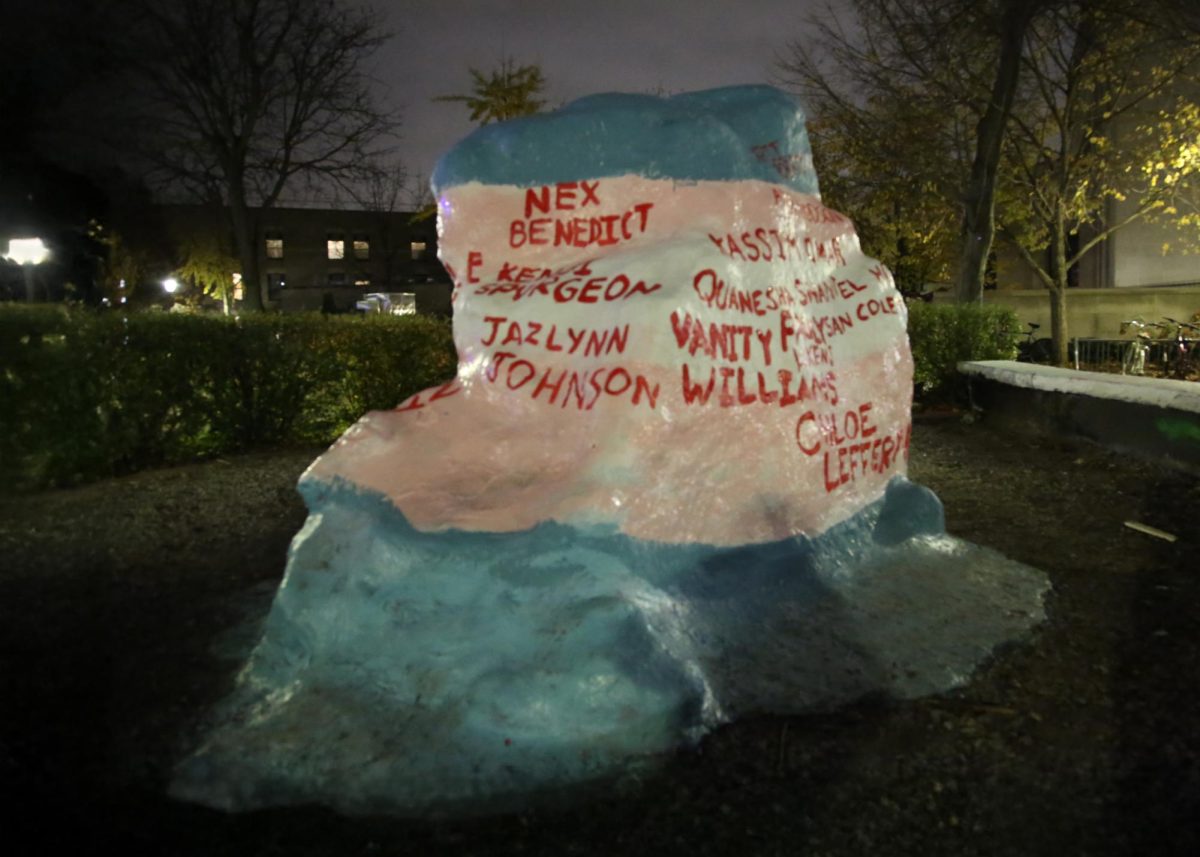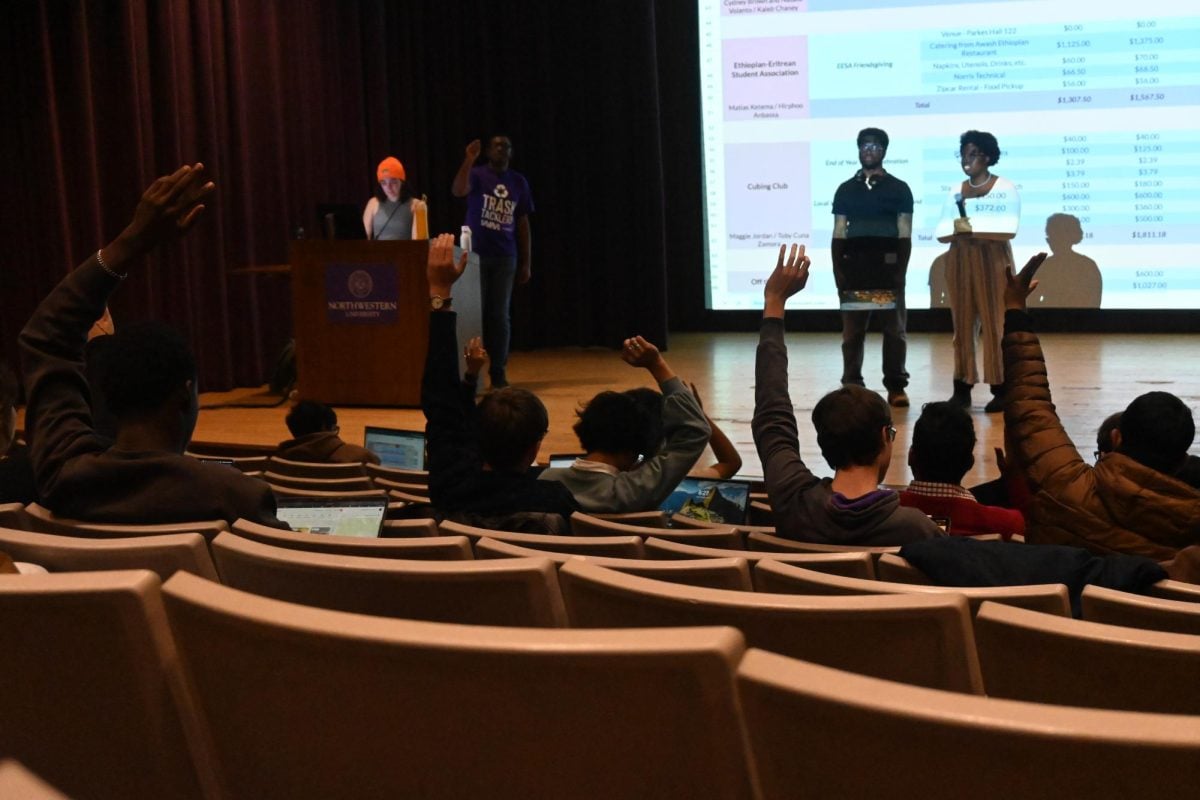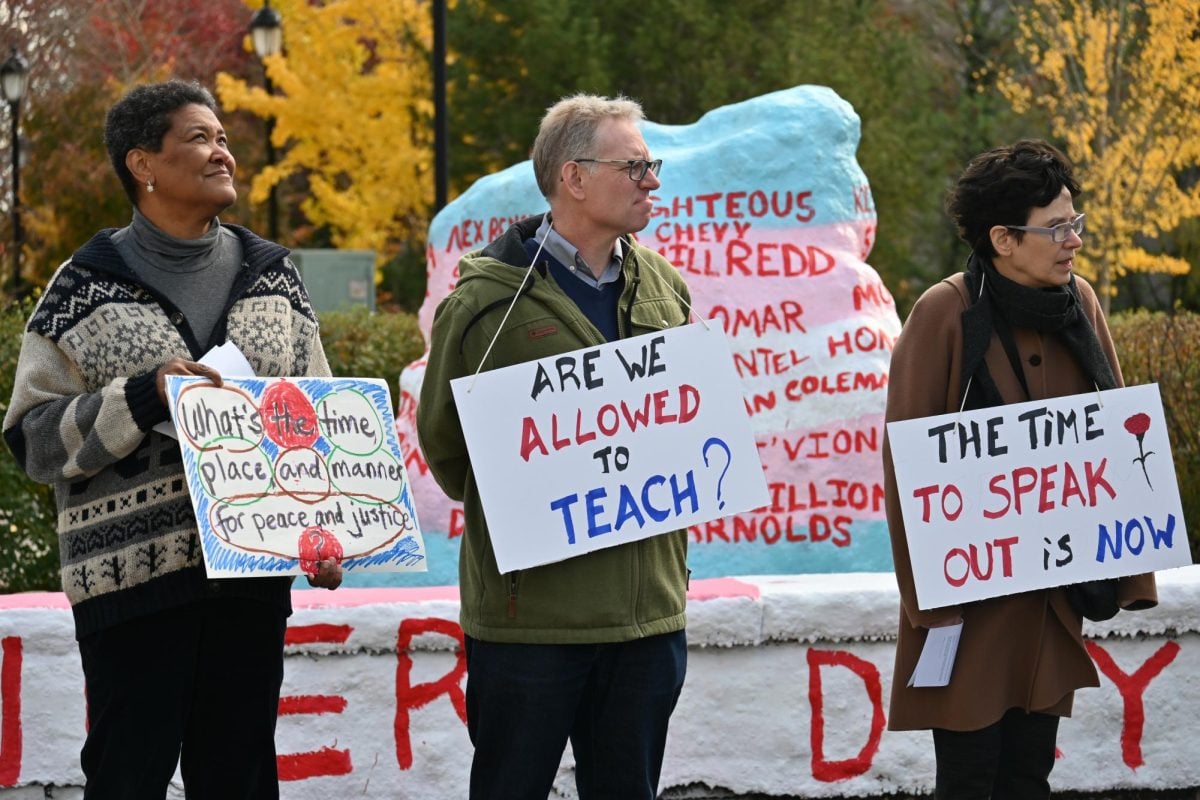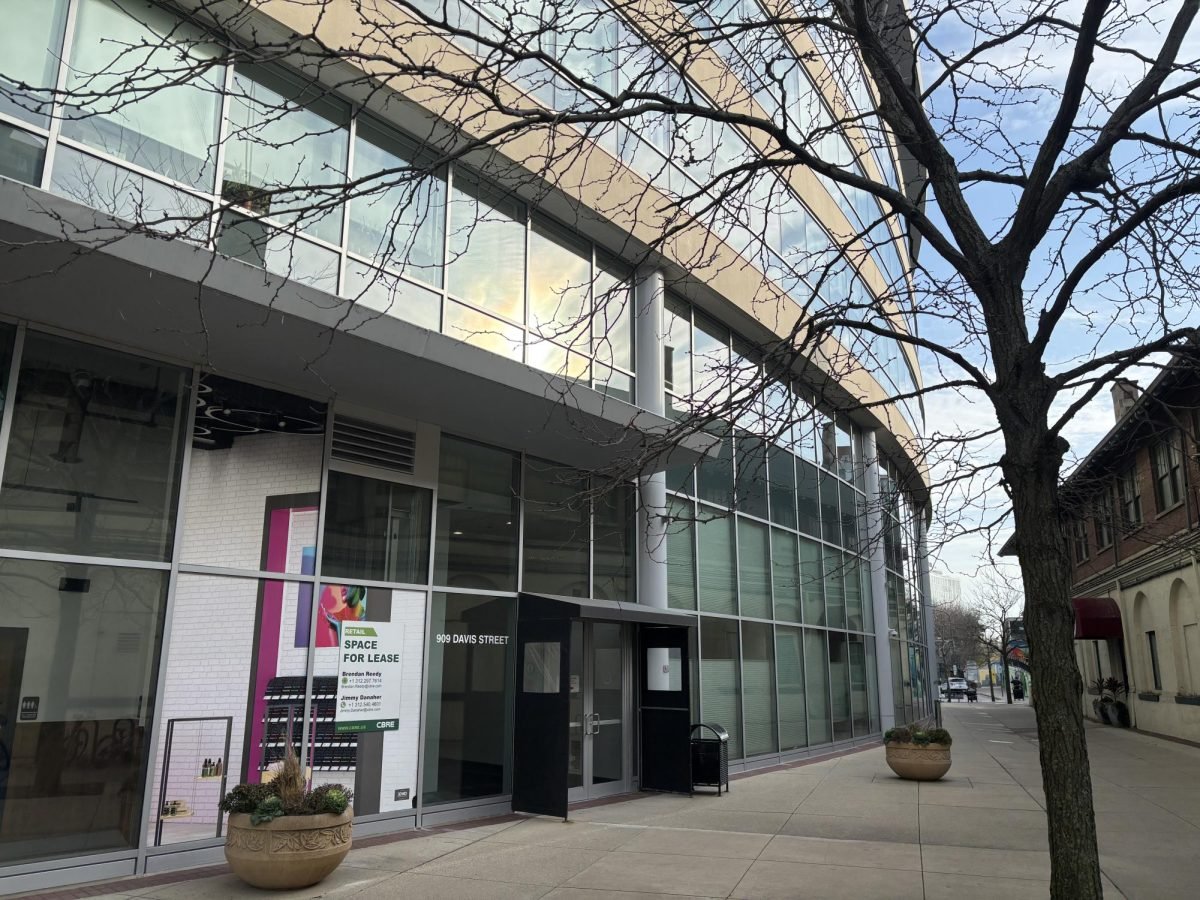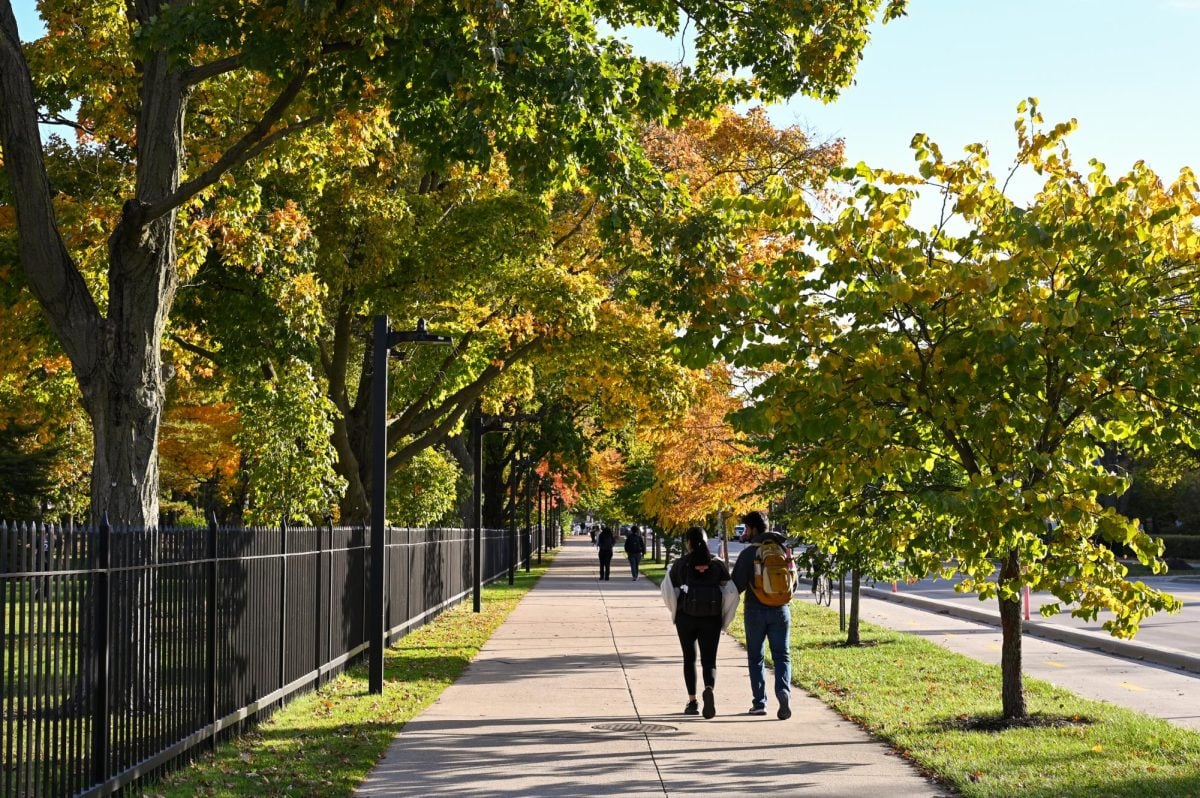In his commencement speech Wednesday at Northwestern University in Qatar, then-senior Ismaeel Naar reminded his classmates of their projects addressing the Syrian revolution and obesity in Qatar. Listening in their purple robes — more than 7,000 miles from Evanston — the journalism and communication majors had challenged the prevailing media climate in the small Gulf nation.
“What we learned here is that stories have the power to move not only one person, but a nation,” the journalism major, now an alumnus, said.
As NU-Q graduated its second class last week, faculty and administrators said they hope their guidance will empower alumni to build a modern, open Arab press — based in a country that has yet to enact a free press law, as mandated in its 2003 constitution.
“What we’re doing here has the potential to transform a whole society,” said Everette Dennis, NU-Q dean and CEO. “It is a tremendous challenge in a place where freedom of expression abuts tradition and religion at every corner.”
At the same time, some students said they feel pressured to conform to a “Western” journalistic mindset, with faculty members and visitors from the Evanston campus talking down to them.
“No one gives Arabs a chance,” Naar said.
That contradiction between West and East and the struggle between respecting the old way and creating something new lies at the root of the project of NU-Q. For journalism and media students, the combination presents unique challenges.
Locals, unfamiliar with the sight of news teams with cameras, shy away from interviews. Overeager police officers spot students reporting and rush over to shut them down. And longstanding social codes transform certain interviews into uncomfortable encounters.
“I can think of half a dozen incidents where local cops stopped students from taking pictures,” Associate Dean Richard Roth said. “Then I have to go out and tell them ‘No, they’re students, they’re from Education City.’”
Life in Education City
NU-Q, which offers degrees from Medill School of Journalism, Media, Integrated Marketing Communication and the School of Communication, enrolls about 120 students from more than 30 different countries. The majority live at home and commute, though many international students live on the sprawling Education City campus in western Doha, Qatar.
“They are part of our student body,” University President Morton Schapiro told The Daily in April, just weeks before he traveled to Qatar for graduation. “I give them their diplomas.”
NU’s benefactor is the independent but government-funded Qatar Foundation, which is chaired by the wife of Sheikh Hamad bin Khalifa Al Thani, emir and dictator of Qatar. Charged with building science and education in Qatar, the Foundation foots the bill for NU-Q, along with the five other American universities and other programs in Education City.
The investment’s effect is tangible.
Education City’s campus is the base for a range of academic programs. The universities, all of which operate together on the semester system, host major conferences and consult with world leaders. In December 2011, delegates from the Libyan Transitional Council and media met in Doha to discuss the future of the press in a nation coming out from under the dictator Moammar Qaddafi’s shadow. NU representatives, among them Dennis, moderated.
The Foundation’s support is also a boon for student life.
“I love our dorms,” said Syed Owais Ali, a Pakistani international student who just finished his freshman year studying communication at NU-Q. “They’ve given me two MacBooks now, and a nice camera. And a scholarship.”
The generous equipment rental package is free and universal for NU-Q students, and many who come from outside Qatar say the Foundation pays their tuition.
Foundation money also covers student trips all over the world, including South Africa and Washington, D.C. On Saturday, a group of NU-Q students arrived at the Evanston campus — known in Qatar as NU-E.
The origin of NU-Q
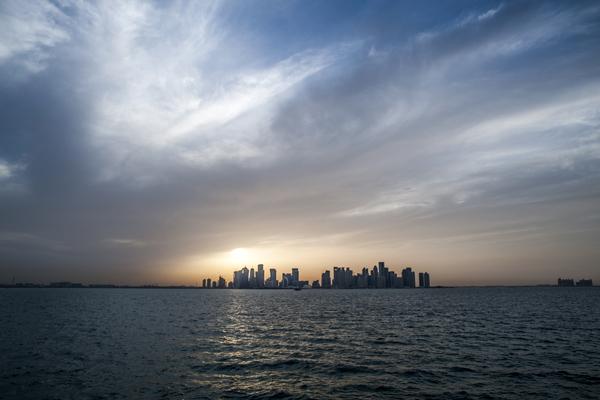
Northwestern came to Qatar as part of the reform project that the emir and his wife, Sheikha Mozah bint Nasser Al Missned, set in motion for their small, oil-rich Gulf state.
Sheikha Mozah, the second wife of the emir, has made a name for herself as a partner in the nation’s education and social reforms. Forbes ranked her No. 74 on its 2010 list of the world’s most powerful women.
Since Sheikh Hamad seized power in a bloodless coup d’etat in June 1995 while his father, the prior emir, was vacationing in Switzerland, he has worked to refashion the Qatari society and economy.
Although at the end of the 20th century there was only desert on the outskirts of the capital city, a gleaming skyline now rises above Doha. Oil revenue, which other gulf states have used to build ski resorts and massive skyscrapers, is spread across a range of business and public interests. And the average Qatari makes more in a year and is more likely to be employed than any other national in the world.
Fighting restrictions on Qatari journalism
NU-Q faculty say all of those resources are geared toward building a stronger, more open Qatari media.
“There’s a great deal of self-censorship in this part of the world,” journalism Prof. Janet Key said. “Governments don’t have to censor you.”
Key said she and her colleagues work to instill in their students the same values of thorough, on-the-ground reporting their Medill counterparts teach in Evanston.
“Many students, particularly the Qatari women, have never gone up to a strange man, particularly a man they would see as lower class, in their lives,” she said. “They’ve never walked on the streets. Everyone drives.”
Entering her sixth year at NU-Q, Key said she has worked to break those habits. That goal is not easily reached in a country where, as Roth said, people “are not used to” serious journalism.
“The journalism culture here that exists is very odd,” Roth said. “They don’t name names. I remember a story recently in the press about an international cereal brand ordered off the shelves. … They never named the brand. How is that helpful?”
In addition to problems of police harassment and self-censorship, students face a cultural environment that runs counter to the values of multi-source journalism taught at Medill and NU-Q.
“The professional reporters here just go to the press conference and write down whatever the top guy says, take the handout,” Roth said. “In this culture you’re not supposed to question authority, question strangers. Girls don’t question men.”
The lack of a Qatari press law compounds the problem. The national constitution, ratified in 2003, guarantees freedom of the press. However, Qatari media is still governed by a 1979 rule that makes defamation a criminal offense and bans criticism of the emir or even quoting him without written permission from the “manager of his office.”
Roth said he believes NU-Q plays a critical role in changing the status quo — not through advocacy, but by saturating the media with NU-trained journalists. He said the problem is not unique to Qatar.
“It was rough going (in the United States) 10 years or so after the First Amendment,” he said. “We just had our second graduating class. That’s just a few people out there. After 10 years, or so we’ll have 150, and they’ll be editors and they can change things.”
Establishing an independent student voice
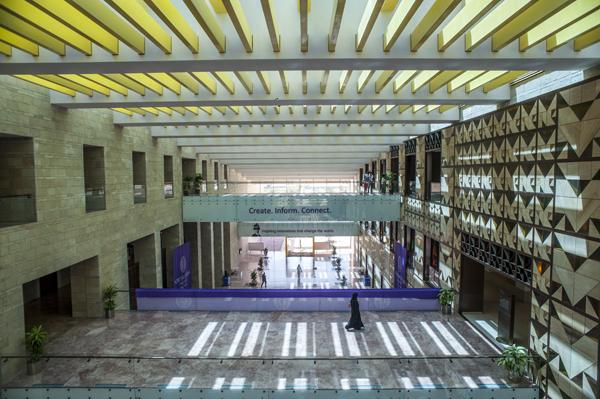
During his senior year, Naar, the 2013 commencement speaker, left the staff of The Daily Q. At the time, he said Key, faculty adviser to the student newspaper, held too much power.
“There is a feeling that we need our hands held through everything here,” Naar said just after the incident, while still a student. “It bothered me.”
Like Naar, some NU-Q students think their ability to write unrestricted is curtailed at the university-funded student paper.
Rising NU-Q sophomore Silma Suba said when the school and its student government held their first open meeting with freshmen at the start of the fall semester, many sophomores and juniors complained about The Daily Q, calling it “too professor-driven.”
When she showed up for the first staff meeting, the only upperclassman in the room was senior Sidra Ayub, the editor in chief. Key sat in a corner. The Daily Q would be staffed by eight freshmen for the 2012-13 academic year.
“It was kind of weird at first,” Suba said.
However, many of those same upperclassmen who did not return to the paper now say they are impressed with the accomplishments of the small staff.
“Last year people wouldn’t really check The Daily Q or read anything,” said rising NU-Q journalism junior Jaimee Haddad, one of the handful of Americans at the school. “But this year they’ve been really on top of their game.”
The Daily Q has expanded its coverage of Education City, including more critical stories like Suba’s first article, which covered rats in the dorms and other living space issues. The staff published city stories that went viral in Qatari media, like one about a mall fire that killed 19 people and a concert by the rock band The Script.
Even Naar admits the publication has improved.
“Maybe it can be a launching pad for more student press, independent publications,” he said.
Ayub, the outgoing editor in chief, said she tells the paper’s critics something similar.
“If you don’t like what we do, start your own,” Ayub said.
Key and her staff said her presence in the newsroom helps guide the students.
“She has more than 40 years of experience.” Suba said, “We need that.”
University money helps as well. Editors are paid $1,100 in American money per semester, and reporters $900, figures staffers say they expect to rise.
Ali, the rising journalism sophomore in charge of building the online and social media presence of the The Daily Q, said he hired programmers with the paper’s funds to redesign the website and build a mobile app, not yet released.
Daily Q staffers said they do not believe faculty involvement and university funds compromise the integrity of the paper.
“We have full control, we pitch her and she approves it,” Suba said, “She’ll say she doesn’t like your angle, but she won’t stop a story that hurts NU-Q.”
“If I had the choice to work for The Daily Q or an independent newspaper, I would work for The Daily Q … because of the money, of course,” Ali said.
Student journalism, police collide
On May 28, 2012, a fire broke out at the popular Villagio shopping mall in Doha, killing 19 people, including 13 children. The tragedy remains a significant date for Qataris, a symbol, some students said, of the dangers of rapid expansion in a city that has remade itself in the last decade.
For NU-Q, the upcoming anniversary also highlights an ongoing trouble for the school. Usama Hamed, a rising senior studying journalism, was arrested last year after returning to the scene of the fire in the following days.
“I didn’t think it was a problem,” he said. “I had my camera, I’m not a threat. I’m a journalist.”
Hamed said when he was arrested after briefly hiding from the police, he was accused of being a spy because of his Syrian heritage. He was detained for more than a week.
NU-Q administrators say they are careful about discussing the arrest, both because Hamed’s trial is “shelved” for the time being and because of a March article published in The Northwestern Chronicle that went viral on the Qatar campus.
Hamed said when he sought help from the university, Greg Bergida, NU-Q director of student affairs, told him, “Northwestern does not help or support criminals.”
Bergida declined to comment on their conversation, calling it a confidential matter.
Roth, who sent his government relations officer to the police station after Hamed called, said he offered to support the student as a character witness. He noted that the arrest was Hamed’s second.
Hamed is “quite an aggressive reporter for a student,” he added.
NU will neither punish Hamed nor take responsibility for his defense, Bergida said.
“Not on our campus, not in Education City, not our issue,” he said.
‘What’s going to happen here?’
When Western journalists call, Naar said he feels he has to “defend Qatar, not because they gave me so much, but because it’s true.”
“It’s just my opinion that if you go to the Northwestern Chronicle or even The New York Times, they aggressively attack Northwestern over the whole Usama case without whole context,” he said, “What the Chronicle needs to realize and what Northwestern University in Qatar’s critics need to realize is we’re doing everything for the first time.”
The responsibility of being part of something new in Qatar weighs heavily on graduating students.
“It is so important that everything we do, we do right,” Ayub said, “Qatar is looking at us. Evanston is looking at us. Everyone is asking, ‘What’s going to happen here?’”
The staff and faculty emphasize that NU-Q is not a temporary experiment.
“We are the third campus of Northwestern, as Schapiro has said,” Bergida said. “We’ve graduated two classes.”
Multiple students said the end goal is a freer, more open media society. Some, however, said the Qatari press they envision is very different from Western media.
“Journalists, and not only journalists, filmmakers and writers, need to freely express their opinions,” Naar said. “Just because there should be a free press doesn’t mean we should have crazy criticism. This goes to balance between society and culture, a responsible Arab journalism. We certainly don’t want Fox News here.”
Editor’s Note: The reporter traveled in April to Doha, Qatar, on a Qatar Foundation-funded exchange trip with Northwestern students from Evanston.
Correction: A previous version of this story misstated when Usama Hamed was arrested. He was arrested several days after the mall fire. The story also misstated the current status of Hamed’s case. The trial has been shelved for the time being. The Daily regrets the errors.
